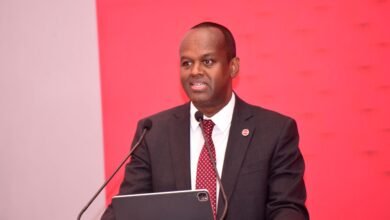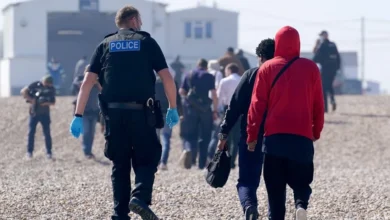
Financial analytics company S&P Global Ratings has lowered its long-term foreign and local currency sovereign credit ratings on Kenya to ‘B’ from ‘B+’.
The downgrading is because of a sharp slowdown in Gross Domestic Product (GDP) growth in 2020 coupled with effects of the coronavirus pandemic, and a consequent rise in fiscal deficits, weighing on Kenya’s already weak public finances and external debt metrics.
This despite external financial support, including an International Monetary Fund (IMF) program, aimed at helping fund Kenya’s twin fiscal and external deficits in 2021-2024.
As Kenya’s debt levels continue to rise, there are significant risks to the government’s fiscal consolidation plan, with external debts projected to remain high.
S&P global estimates the effects of the COVID-19 pandemic to have driven Kenya’s real GDP growth down to 0.2 percent in 2020 from an average of 5.6 percent in the previous five years.
Further Kenya’s fiscal deficits widened, despite the support of a new $2.4 billion 38-month IMF program and a fiscal consolidation plan, which S&P, anticipates will proceed slowly.
According to S&P, the general government deficit will widen to 8.7 percent of GDP in the financial year ending June 2021, before falling slightly to 7.7 percent in financial year 2022 and averaging 6.6 percent in the financial year 2022-2024.
In addition, financing of these deficits in turn is expected to raise domestic and external debt levels and increase external vulnerabilities.
The ratings on Kenya have considered the country’s low GDP per capita, high fiscal deficits and debt stocks, and its history of ethnic tensions.
Despite Kenya having among the most sophisticated institutional framework compared to peers, S&P notes that ethnic loyalties often supersede national ones.
The rating comes in the wake of an almost certain referendum on a constitutional amendment in 2021 and parliamentary elections due in August 2022.
However, the ratings have been backed by the country’s diversified economic base, its large and diversified agricultural and services sectors, relative to peers, which could cushion the economy and support a rebound.
Kenya received the first batch of the coronavirus vaccine from the COVAX programme spearheaded by the World Health Organisation (WHO) which is expected to aid in the fully re-opening of the economy that has been battered by the pandemic.





